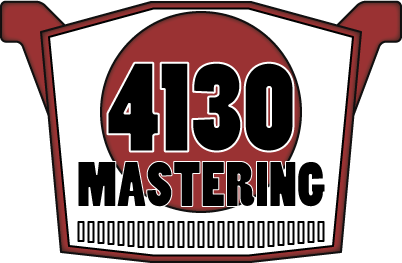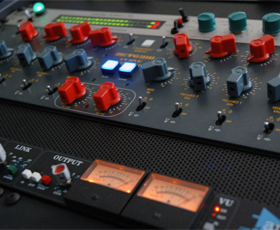 |
 |
 |
| Music and audio have always been a part of my life. I have played guitar in several NYC bands, I helped build and on occasion work at Brooklyn's own "The Fort" recording studio, and have been a professional audio tech for just over a decade. I regularly consult with engineers and enthusiasts on gear, troubleshooting, and their mixes. |
 |
| Mastering is the art and science of preparing your music for mass consumption and enjoyment. It is typically a combination of creating a tonal balance throughout a collection of songs, "smoothing out" songs so that they sound their best on all types of playback systems (iPod, car stereo, headphones, radio, club PA), placing songs in a sequence allowing them to fade into one another musically, and handing the artist the finished product before duplication. |
 |
| Communication is a big part of the relationship between the artist and mastering engineer. If you like your mixes bright, super bassy, kind of thin, vocals pushed back, etc. then let me know so that I don't think it was done in error. I will advise you based on what I hear and what I am asked, but I don't believe in trying to push my philosophies on others. If you are unsure about what working with me will sound like, contact me and then send me a song or two so that I can provide you with a sample of what your music will sound like after the mastering process. |
 |
| Stereo mixes can be delivered as Data CD, DVD, Hard drive, Flash drive with WAV, BWAV, AIFF, SDII, Pro Tools sessions, etc. It is ideal for your project to be at 24 bit, but 16 bit is acceptable. I can provide you with my FTP server information to upload files if you are not local to the NYC area. |
 |
| Mix as hot as you like and compress for "color" and taste, but please don't use a brickwall limiter on the master fader/bus just to get louder mixes. This limits (no pun intended) what can be done in the mastering process severely. Mixes with brickwall limiting should be reserved for client reference, while mixes without brickwall limiting should be sent to mastering. Otherwise, don't worry about your levels or your choice of compression for color. |
 |
| Your mix should be at the same sample rate as your project. However, be aware that your choice of sample rate is directly related to the frequency range of your project. Just because modern digital devices are capable of high sample rates does not mean you should use them. The frequency ranges of 44.1 kHz and 48 kHz are typically more than sufficient for most music. |
 |
If you have any questions related to preparing your mix for mastering,
please contact me at info [at] 4130mastering.com |
 |
|
|
|
 |


